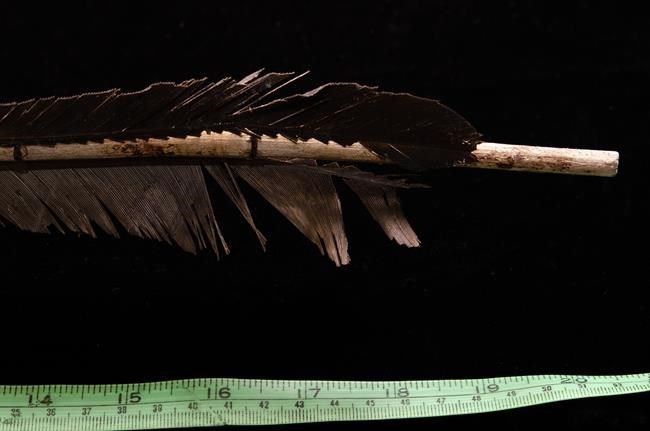WHITEHORSE — Researchers say they've discovered castoreum, a secretion beavers use to mark their territory, in a 6,000-year-old throwing dart in the Yukon.
The researchers from the Canadian Conservation Institute say they believe it's the first time the secretion has been identified in an ancient archaeological context.
A release says the two-metre-long dart was found in 2018 in melting alpine ice in the Carcross/Tagish First Nation and the Kwanlin Dun First Nation.
The study began after the territory's conservator noted an unusual orange residue coating part of the dart where it was bound together and questioned what it was.
Researchers say the use of beaver castoreum by First Nations is well-known, but they aren't sure if it was used on the dart as a preservative, an adhesive or to add colour.
Similar studies of ice patches in the territory have found tree resin was also used as an adhesive.
"Our lands hold many secrets and insights into the past," Carcross/Tagish First Nation Chief Lynda Dickson says in the release. "Unearthing and studying these findings is valuable not just from a scientific and historic perspective, but culturally.
"Walking hand in hand with the land, water and wildlife is the history of our people. Their resourcefulness and ingenuity continue to impress and teach us."
This report by The Canadian Press was first published June 15, 2021.
The Canadian Press

